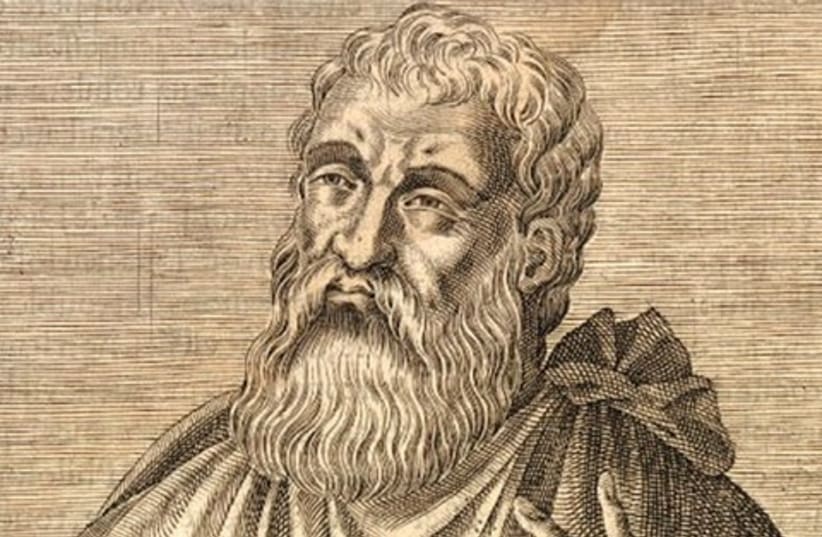Like Barnabas, Justin abounds in allegorical interpretation. Just one example: He claims the 12 bells on the High Priest’s robe have nothing to do with Israel, but are symbolic of the 12 apostles! In Justin’s view, the patriarchs are Christians, as are all the Old Testament greats. They all preached Christ which the Jews were too dim and evil to understand. So from that perspective the Old Testament becomes a totally Christian book and the words of the prophets “are contained in your Scriptures, or rather not yours but OURS, for we believe them, but you, though you read them, do not catch the spirit that is in them.” (Trypho XXIX)
But the real venom is in what Justin adds to the adversus judaeos tradition. The first horror is his idea of the circumcision. “For circumcision...which is from Abraham, was given for a sign: that you may be separated from other nations, and from us [Christians] and that you alone may suffer that which you justly suffer; and that your land be desolate, and your cities burned with fire... and not one of you may go up to Jerusalem.” (Trypho XVI)
This flies in the face of Scriptures like Genesis 17:11. Jewish suffering is just. They must be separate from other people and their land destroyed. Circumcision is a sign that puts a baby on a tragic road of suffering.Justin wholeheartedly agrees with Hadrian’s decree forbidding Jews to enter Jerusalem on pain of death in 135 CE. It is the judgment of God. Jerusalem is no longer the city of the Jews, according to him. Thus the idea makes its way into early Christian thought that Jerusalem is not of the Jews. It undergirds almost 2,000 years of Christian dogma towards the city. In many cases it is still there.The third novelty which Justin introduces is the collective guilt of Jews over the murder of God’s son. He has no mercy: “[A]nd to this day you abide in your wickedness, execrating those who prove that this man who was crucified by YOU is the Christ.” (Trypho XCIII)
Christ was crucified by the Jews as a race, not by some individuals 120 years before, Justin proclaims, in another theme that will have tragic consequences.Justin also introduces a view adopted by other Church Fathers, that there is no real hope for the Jews. Zechariah 14 is considered by many the moment in which the Jews finally recognize the Messiah. They will believe in him and be converted. Justin is the first to doubt this: “If thy repent it will do them no good” (First Apology).So around 150 CE, most of the anti- Judaic concepts were present and thriving in the Church. Justin showed the way. Worse was to follow.
Rev. Anthony Rozinni is a pastor and Bible school teacher in Italy whose studies for a Master’s degree included extensive reading about the Church Fathers. This is the latest in his series on the rise of anti- Semitism in the early Church.
